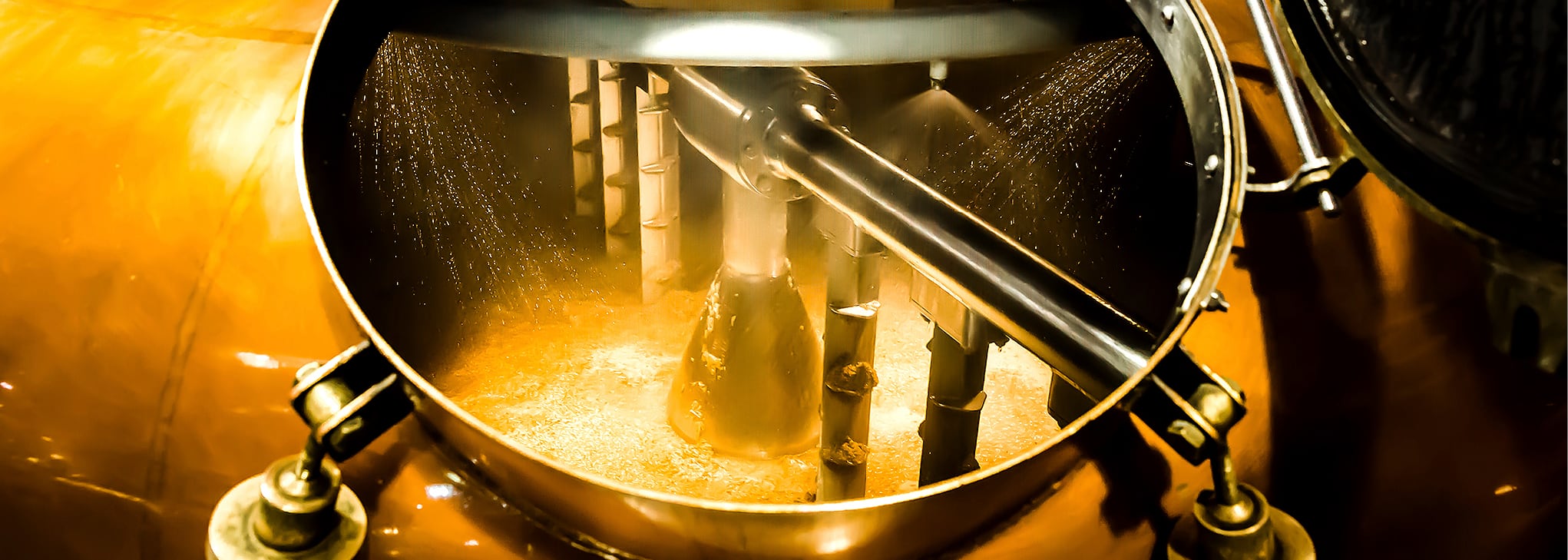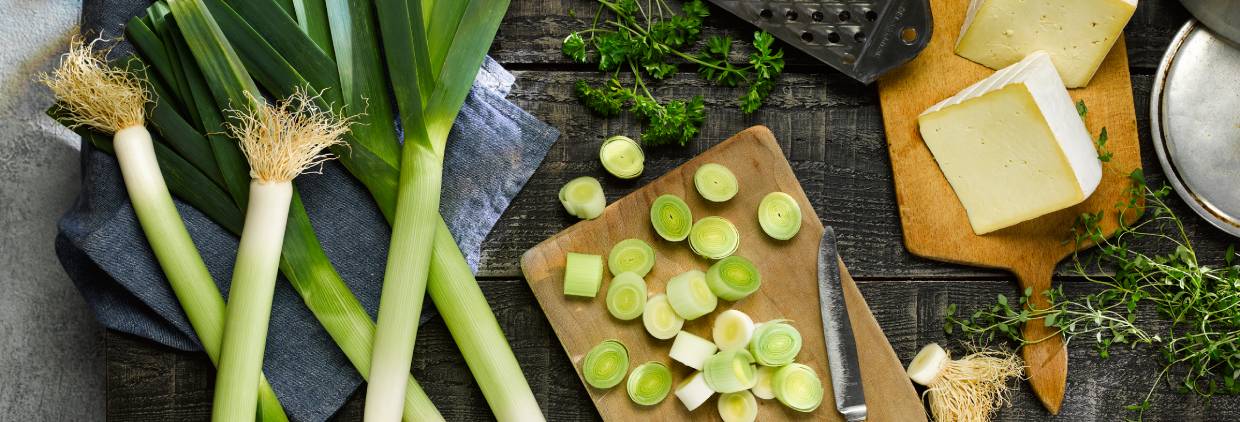Collaboration across industry, government and academia has served Wales well; its food and drink industry is recognised the world over for excellence, quality, innovation and provenance. Not bad for a country of just over 3 million people. Little wonder then that despite a tumultuous few months and years because of EU Exit and the Covid-19 pandemic, this small country has once again declared a bold vision to meet what is arguably the most important challenge of the time, with an ambition to be a world leader in sustainability.
Dubbed the ‘green shoots’ vision, it’s hoped that by focussing on sustainable growth and productivity, climate and ecological impact, fair work and raising standards throughout, Wales can create one of the most environmentally and socially responsible supply chains in the world, without compromising its global reputation for excellence.
Wales’s watchers won’t be surprised by this, of course; the Welsh Parliament was one of the first in the world to declare a climate emergency and they embedded sustainability at the heart of law-making back in 2015, by enacting the Well-being of Future Generations Act – another world first.
Wales played a historic role in fuelling the industrial revolution, and the country seems ever conscious of its present day role in tackling climate change, with sustainability at its core. It is also a neat fit that it’s once again Wales’s people and natural resources – the plentiful raw ingredients that fuel the food and drink industry - that are driving another revolution, this time in food sustainability.
Nobody’s pretending it’s not a challenge. But it’s also quite a savvy move: after all, research has found that sustainability is important to 88% of consumers, with 40% of them willing to pay more for food and drink that is sustainable. Research also finds Wales is well placed to capitalise on this increasing trend with a strong international reputation for producing high quality, tasty and natural products. And if they’re not quite there yet, the foundations are set firm.
Research & Development
Wales has certainly put its money where its mouth is when it comes to research and development. Early investment in the science and technology of food means that Wales now has the mature and experienced R&D infrastructure it needs to underpin the growth of its food sector in a sustainable way.
Food Innovation Wales is at the heart of Wales’s food and drink industry, responsible for nurturing bright ideas, supporting established brands, and driving growth, over the past few decades. Under the umbrella of Project HELIX, Food Innovation Wales has been channelling expertise through its three food centres across the nation, creating and safeguarding jobs, supporting new and established businesses, and helping the sector access new markets. Since 2016, Project HELIX has underpinned the development of more than a thousand new products and had a financial impact calculated to be £161 million.
Project HELIX has now turned its attention to helping Welsh food and drink companies improve their sustainability, focussing on waste reduction, process efficiency and improvement, sustainable new product development, and driving up the sustainability of food and drink production through supply chains.
Martin Jardine, Director of Agri-Food - Grŵp Llandrillo Menai, which runs the Food Technology Centre in North Wales, is one of the early pioneers and rightly proud of the role that Food Innovation Wales has played in the growth and development of the food sector. He says:
“Wales is a fantastic place for food and drink producers to establish themselves. The support and expertise available makes it possible to fully develop a food and drink product from concept to consumer in one location. A legacy of the vision the Welsh Government and strategic partners had all those years ago of establishing a robust food and drink infrastructure, and testimony to that early financial investment. We will bring that same zeal to making sure that Wales has one of the most environmentally and socially responsible food and drink supply chains in the world. We know it’s morally the right vision, and we’ve made a confident start.”
A range of wider partnerships further binds this Welsh triple helix approach, from pioneering work by AMRC Cymru, part of the Advanced Manufacturing Research Centre, through to ground breaking work at the internationally recognised Institute of Biological, Environmental and Rural Sciences (IBERS) based at Aberystwyth University.
Amongst IBERS current projects being undertaken is one on sustainable crop production, involving international partners seeking to ensure crops can be grown successfully in the altered temperatures, rainfall, and new disease pressures that come with climate change. In 2020 Aberystwyth University opened AberInnovation - a group of Biotechnology, AgriTech and Food and Drink R&D Centres - and this cluster is now playing a critical part in fostering a sustainable knowledge based bio-economy to support sustainable growth in the future.
Sustainability of primary products
It certainly feels like Wales is making a confident start. The sustainability credentials of Welsh Lamb and Welsh Beef – already strong brands worldwide – were boosted recently when research conducted by Bangor University showed that when farmed using non-intensive methods, Welsh red meat has among the lowest greenhouse gas emissions of comparable systems worldwide. And the good news is that Welsh Beef and Welsh Lamb are raised overwhelmingly in systems which rely on abundant grass pasture and rainfall.
Hybu Cig Cymru – Meat Promotion Wales, the nation’s levy body for the red meat industry, believes that Wales is well-placed to produce red meat with very low emissions. It has set ambitious goals for the future and deepened its commitment to socially and environmentally responsible farming by recently launching a sustainability roadmap as well as joining the Global Roundtable on Sustainable Beef.
Hybu Cig Cymru – Meat Promotion Wales Chief Executive, Gwyn Howells, said:
“Wales is already leading the way in helping the environment, but we know there’s a lot more to do to further the positive contribution that Welsh livestock agriculture can make towards meeting the climate challenge. That’s why we’re working to reduce our overall agriculture emissions by 7.5% in the coming years, to help Wales reach Net Zero by 2050.”
The shifting tectonic plates of EU Exit, Covid-19, and the climate emergency, have provided the agriculture industry in Wales with its most challenging period for a generation. And it’s clear that Welsh farmers now believe that sustainability is integral to the future for farming. Food security, high welfare standards, traceability, and a renewed focus on the environment are part and parcel of Wales’s vision for one of the most environmentally and socially responsible supply chains in the world.
Food & Drink Wales Sustainability Cluster
The Cluster concept, pulling together like-minded businesses to develop further synergy and interconnection, has had real success in Wales. It has brought together industry practitioners to share ideas and collaborate in their specialist areas, be that seafood, horticulture, nutrition foods, and more. The Sustainability Cluster is open to all specialist areas, but its sole focus is on the quest to have one of the most sustainable supply chains in the world. It’s hoped that by providing a forum for sharing sustainable practice, what’s been successful in one part of the sector, may also be successful elsewhere.
Not surprisingly, given the focus on the climate emergency, and consumer and legislative pressure to cut waste and increase efficiency right across the food manufacturing journey, the Sustainability Cluster is popular right across the sector and is growing month by month in numbers and cross-working innovations that has not been seen before.
The Sustainability Cluster is a multi-criteria approach to support businesses on their journey of continuous improvement to deliver the values of resilience, quality, responsibility and authenticity. And, of course, the Sustainability Cluster utilises the successful triple helix approach and includes government, industry and academia working hand in hand to tackle common industry problems.
Not for the first time does Wales have a grand ambition, and it’s one underpinned by firm foundations that support businesses nurtured in Wales and now have a global reach that is firmly based in the interests of food system sustainability.
Making the vision a reality
With such strong foundations now firmly in place, Wales is poised to see its vision of a world-leading sustainable food and drink industry into reality.
Some key dates in its pathway to a sustainable future include participation in the Climate Smart Food event, organised in conjunction with Food Navigator, which will take place late September. The three-day event will focus on the core themes of supply chain challenges, a sustainable consumption shift, and food-tech innovation for food system transformation. It will also tackle some of the fundamentals, from deforestation and regenerative agriculture through to bio-fermentation and carbon labelling, as it grapples with not only the longer-term ambition for a net zero future, but also practical short-term solutions currently outlined by Welsh Government.
Building on this in late October will be BlasCymru/TasteWales 2021, the third edition of Wales’s international food and drink trade event, which brings food buyers and industry professionals from across the globe to ICC Wales at the Celtic Manor Resort in Newport. Among a packed programme of activity will be a high-level food and drink conference that will feature sessions looking at a number of issues affecting sustainability, as the industry and Welsh Government work collaboratively to create a green future that the nation can be proud of.
To learn more about BlasCymru/TasteWales 2021, be it through attending in person or through a one-to-one virtual meeting, visit tastewales.com and register your interest.





